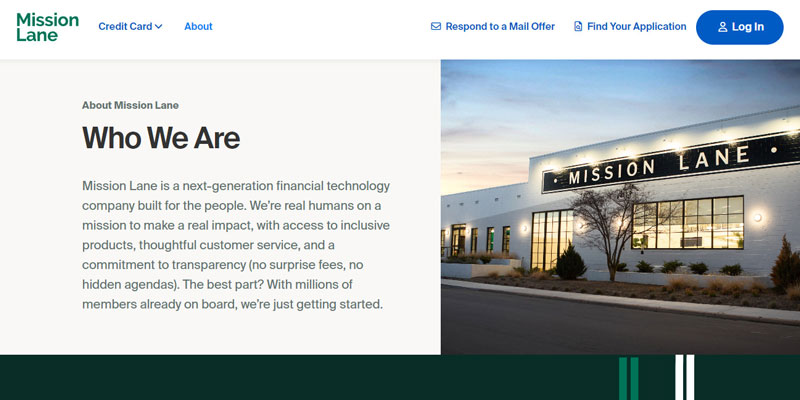A Guide to Different Types of Caregiver Jobs and How to Get Started
May 20, 2024 By Triston Martin
Advertisement
Are you looking to make a difference in someone's life? Becoming a caregiver could be your calling. Caregiver jobs come in various forms, each with its unique responsibilities and requirements. In this guide, we'll explore different types of caregiver roles and provide tips on how to kickstart your career in caregiving.
What are the Types of Caregiver Jobs

These are the types of caregiver jobs:
Personal Care Aide
Personal care aides assist clients with daily tasks such as bathing, dressing, and grooming. They may also help with meal preparation, medication reminders, and light housekeeping. This role is ideal for individuals who enjoy providing hands-on assistance and building meaningful relationships with clients.
Home Health Aide
Home health aides provide similar services to personal care aides but may also offer basic medical care under the supervision of a registered nurse or other healthcare professional. This can include monitoring vital signs, changing dressings, and administering medication. Home health aides typically work with clients who are recovering from illness or injury or have chronic health conditions.
Certified Nursing Assistant (CNA)
CNAs are employed in a range of healthcare environments, such as assisted living communities, nursing homes, and hospitals. They help nurses with patient care duties, including feeding, washing, and helping patients move around. Additionally, CNAs keep an eye on their patients' health and notify the nursing staff of any changes. You must finish a training course that has been approved by the state and pass a competency exam in order to work as a CNA.
Companion Caregiver
Companion caregivers provide social and emotional support to clients who may be isolated or lonely. They engage clients in conversation, accompany them on outings, and participate in recreational activities together. While companion caregivers typically don't perform hands-on personal care tasks, they play a vital role in enhancing clients' quality of life.
How to Get Started in Caregiving?

Here are the steps to get started in caregiving:
Assess Your Skills and Interests
Before pursuing a career in caregiving, take some time to assess your skills, interests, and personal qualities. Caregiving requires patience, compassion, and excellent communication skills. Consider whether you enjoy working with older adults, individuals with disabilities, or those recovering from illness or injury.
Gain Relevant Experience
While formal education isn't always required for caregiver roles, gaining relevant experience can enhance your employability. Consider volunteering at a nursing home, assisted living facility, or community organization that serves seniors or individuals with disabilities. This will give you valuable hands-on experience and insight into the caregiving profession.
Complete Training and Certification
Depending on the type of caregiver job you're interested in, you may need to complete training and obtain certification. Many states require home health aides and CNAs to complete a state-approved training program and pass a competency exam. Even if certification isn't mandatory, completing a training program can improve your job prospects and confidence in your abilities.
Update Your Resume and Cover Letter
When applying for caregiver jobs, tailor your resume and cover letter to highlight relevant skills and experience. Emphasize your ability to provide compassionate care, assist with activities of daily living, and communicate effectively with clients and their families. Include any relevant certifications, training, or volunteer experience.
Network and Apply for Jobs
Networking can be a valuable tool in finding caregiver job opportunities. Reach out to friends, family members, and professionals in the healthcare industry to inquire about job openings or recommendations. You can also search online job boards, healthcare staffing agencies, and local community resources for caregiver positions.
How to Prepare for Interviews
Learn about the firm or organization and the typical roles and duties of carers before attending interviews. Be ready to talk about your background, your abilities, and your motivation for becoming a passionate carer. Emphasize any accomplishments or relevant experience that show you are a good fit for the position.
What are the Benefits of Caregiver Jobs?
Caregiver jobs offer numerous benefits beyond just a paycheck. Let's delve into some of the advantages of pursuing a career in caregiving:
Meaningful Work:
One of the most significant benefits of caregiver jobs is the opportunity to make a meaningful difference in someone's life. Whether you're assisting an elderly individual with daily tasks or providing companionship to a client with disabilities, caregiving allows you to positively impact the lives of others on a daily basis.
Flexible Schedules:
Many caregiver positions offer flexible scheduling options, making it easier to balance work with other commitments such as family responsibilities or pursuing further education. Whether you prefer part-time or full-time hours, there are often opportunities to tailor your schedule to fit your needs.
Variety of Settings:
Caregivers have the flexibility to work in a variety of settings, including private homes, nursing homes, assisted living facilities, and community organizations. This diversity allows you to explore different environments and find the setting that best suits your preferences and career goals.
Personal Fulfillment:
Few careers offer the level of personal fulfillment that comes with caregiving. Knowing that you've made a positive impact on someone's life, provided comfort during difficult times, or helped someone maintain their independence can be incredibly rewarding and fulfilling.
Professional Growth:
Caregiver jobs provide opportunities for professional growth and development. Whether through on-the-job training, continuing education courses, or pursuing advanced certifications, caregivers can expand their skills and knowledge to enhance their career prospects and provide even better care to their clients.
Emotional Rewards:
While caregiving can be emotionally challenging at times, it also offers numerous emotional rewards. Building meaningful relationships with clients, witnessing their progress and achievements, and receiving gratitude and appreciation for your efforts can provide a deep sense of satisfaction and fulfillment.
Conclusion
Caregiver jobs offer rewarding opportunities to make a positive impact on the lives of others. Whether you're interested in providing hands-on personal care or offering companionship and emotional support, there's a caregiver role suited to your skills and interests. By gaining relevant experience, completing training, and networking within the healthcare community, you can take the first steps toward a fulfilling career in caregiving. So, if you're ready to make a difference, consider exploring the diverse world of caregiver jobs today.
Advertisement
-
 Investment Oct 25, 2023
Investment Oct 25, 2023Types of Homeowners Insurance
Learn more about the different types of homeowners insurance and how they can help protect you from property damage and liability issues. Get the customized financial coverage your family needs today!
-
 Banking Oct 09, 2023
Banking Oct 09, 2023How to Upgrade Your Credit Card
Get the most up-to-date technology, enjoy more rewards, and access exclusive perks - find out how to upgrade your credit card with these easy tips!
-
 Banking Feb 21, 2024
Banking Feb 21, 2024Mission Lane Credit Builder Credit Card Review
You're looking to establish or rebuild your credit but need help figuring out where to start. Learn more about the features of the Mission Lane Credit Builder Credit Card and decide if it's the right fit for your budgeting needs.
-
 Taxes Oct 20, 2023
Taxes Oct 20, 2023Will Artificial Intelligence Be Able to Prepare Our Tax Returns?
With automation and AI taking a more prominent role in our daily lives, it's worth exploring whether these technologies could take on the task of preparing tax returns. Read its article to learn more about the potential for AI-based tax filing!
